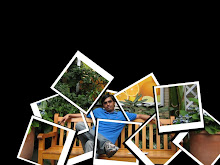
I was happy to be here in
India during the parliamentary elections, the largest democratic exercise in the world to elect a government.
It was (
and is always) a unique experience to witness the campaigns, interviews, and debates of the politicians. Election campaigns in
India usually revolve around development, religion and caste. It is no different this time.
2009 elections will go down in history as when the power shifted from one generation to the next. In the center, Rahul Gandhi took center stage whereas in Tamil Nadu, it was Stalin’s turn. Rahul and Stalin are similar- Rahul comes from the powerful Nehru dynasty whereas Stalin comes from MK’s kudumbam. Both of them took charge of the youth wings of their respective parties and helped them win the elections. But, while Rahul was thrust into politics, Stalin was groomed from a very young age to succeed his father.
Press predicted a victory for BJP in the center and AIADMK in Tamil Nadu. But the results came otherwise. It was a massive victory for the congress and the DMK- both because of the efforts of Rahul and Stalin . Rahul addressed 102 meetings in 97 constituencies and Stalin criss- crossed the entire state for campaigning.
In Tamil Nadu, the 1 rupee/1 Kg rice scheme and the free television scheme did pay huge dividends. And in the center, “India shining” campaign and Rahul’s charisma (the Rajiv- Rahul similarity did help. It is said that Rahul watched lot of his father’s tapes and mimicked his mannerisms!!!) helped them win 261, an absolute majority.
While Rahul declined a position in the ministry, Stalin was offered the Vice- Chief Minister post in the Tamil Nadu ministry. This promotion was long due and people expected it to happen much earlier. Finally, at 86, MK decided that it was time to pass on the baton to his son.
But it was preceded by a huge drama. (There is no better thriller/suspense movie than the political drama that happens in India during and after elections!!!)
While the national headlines read, “Rahul- The Man. The Magic. The politics” (Outlook, June 1, 2009), “The Rahul offensive”(India Today, May 18, 2009), “Rahul Zing!” (The Week, May 31, 2009), the local headlines read, “Celebrations in the street, Struggle inside the house”(Junior Vikatan, June 10, 2009).
MK traveling to the capital and begging for ministerial berths for his sons, daughter and his nephew turned out to be a complete farce. Unlike 2004, when congress needed support from DMK for forming a government, this year’s results made congress dictate terms to the DMK. But the persistence of MK finally won ministerial berths for both MK Azhagiri (his son) and Maran (his grand nephew). The only unlucky one happened to be Kanimozhi (MK’s daughter). The gossip is that she would get a post once the cabinet gets expanded in the near future. As soon as MK packed the bags of Stalin’s competitors to New Delhi, it was time for Stalin to take over Chennai.
What I liked about the 2009 elections:1. Good public turnout for the elections.
2. Rahul Gandhi.
3. Experienced cabinet.
4. First female speaker of the parliament.
5. Promotion to MK Stalin.
6. Rahul rejecting a post in the ministry.
What I did not like in the 2009 elections
1. Missing names in the voter’s list.
2. Rahul rejecting a post in the ministry.
3. Ministerial berths to first time MP’s





